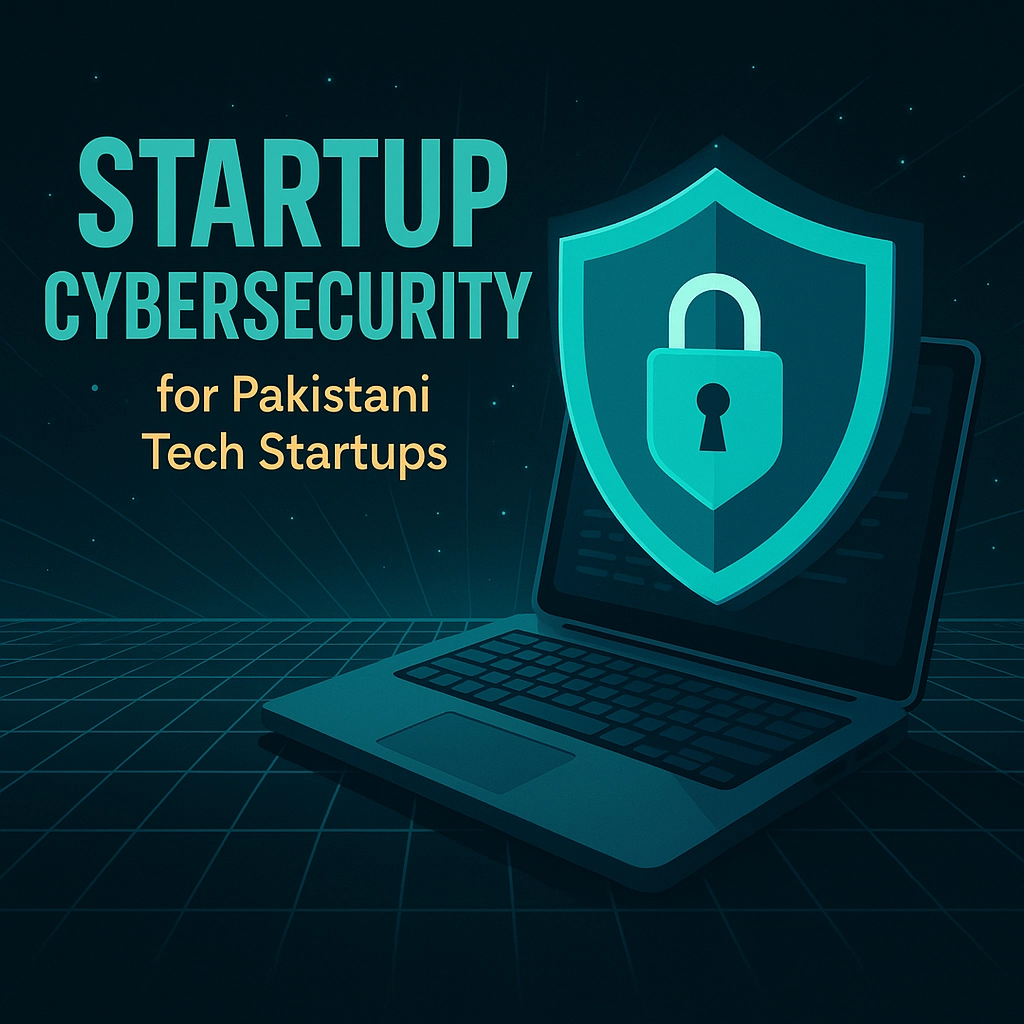
🚀 Introduction Link to heading
Startups today face more cyber threats than ever before. Whether you’re building a SaaS product, launching an e-commerce store, or running a cloud-based service, your digital assets are always exposed.
In 2025, cybersecurity is not a luxury — it’s a survival necessity.
For startups in Pakistan, the risks are even higher due to increasing cloud adoption, lack of internal security teams, and targeted attacks on small businesses.
This guide explains why cybersecurity must be your first business priority and how to implement it cost-effectively.
🔥 Why Startups Are Top Targets for Cyber Attacks Link to heading
Cybercriminals target startups because they are:
1. Low security, high value Link to heading
Startups focus on speed, growth, and product development — leaving security behind.
2. Easy access through cloud apps Link to heading
Most SMEs use SaaS like Gmail, AWS, Firebase, HubSpot — all entry points if misconfigured.
3. Lack of cybersecurity staff Link to heading
Hiring a full security team is expensive. Founders rarely include security in early planning.
4. Sensitive customer data Link to heading
Even a small startup may store credit cards, ID cards, personal info, passwords, or medical information.
🛡️ The Real Cost of Ignoring Cybersecurity Link to heading
Ignoring security can cause:
💸 Financial Losses Link to heading
Data breaches can cost $50,000+ even for a small company.
🚫 Business Shutdown Link to heading
60% of startups shut down within 6 months of a security incident.
📉 Loss of reputation Link to heading
Once leaked, customer trust is nearly impossible to restore.
⚖️ Legal Penalties Link to heading
Pakistan’s PECA Act & international privacy laws can result in legal consequences.
⚙️ What Cybersecurity Should Look Like for Startups Link to heading
You don’t need millions to secure your business. Start with these essentials:
1. Secure Cloud Configuration Link to heading
If you’re using AWS, GCP, Firebase, or Azure:
- Enable MFA
- Block public buckets & databases
- Restrict API keys
- Enable logging (CloudTrail, Stackdriver, Audit Logs)
2. Enforce Strong Access Controls Link to heading
- Role-based access
- Remove ex-employee accounts
- Use password managers
- Enforce MFA everywhere
3. Secure your Code and CI/CD Link to heading
- Automated dependency scanning
- Secret scanning
- SAST + DAST
- Use GitHub Advanced Security, GitLab Security Dashboard, or Snyk
4. Protect End Users Link to heading
Implement security for:
- Session cookies
- Rate limiting
- Captcha
- Input validation
- HTTPS only
5. Incident Response Plan Link to heading
Have a simple plan:
- Who to call
- How to respond
- What to shut down
- How to notify customers
💡 Simple, Low-Cost Security Tools for Startups Link to heading
Here are free or low-cost tools suitable for early-stage companies:
| Purpose | Tools |
|---|---|
| Password Management | Bitwarden, 1Password |
| Cloud Security | AWS Security Hub, Azure Defender |
| Source Code Security | Snyk, GitHub CodeQL |
| Monitoring | UptimeRobot, BetterStack |
| WAF / Bot Protection | Cloudflare Free |
🌍 A Note for Pakistani Startups Link to heading
In Pakistan, cybercrime is rising rapidly. Local businesses — especially fintech, e-commerce, health tech, and SaaS — are at highest risk.
If your startup handles:
- Bank payments
- CNIC data
- Medical info
- Private customer data
- Students’ records
…you are legally and ethically required to protect that information.
I help startups build secure cloud and development pipelines using DevSecOps, secure cloud architecture, and application security engineering.
🧩 Final Thoughts Link to heading
Startups should not treat cybersecurity as an afterthought.
It must be built into the foundation of your business — just like product development and marketing.
With the right strategy, tools, and mindset, even a small startup can reach enterprise-level security and protect its brand.
If you want help securing your startup’s cloud, app, or infrastructure — feel free to reach out.
📬 Need Help With Cybersecurity? Link to heading
I provide:
- Cloud security architecture (AWS / Azure / GCP)
- App security audits
- DevSecOps CI/CD security pipelines
- Penetration testing
- Startup security consulting
👉 Contact: info@shayananique.com